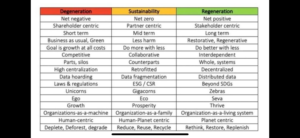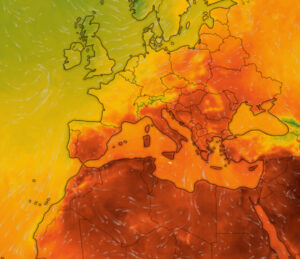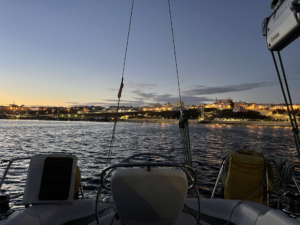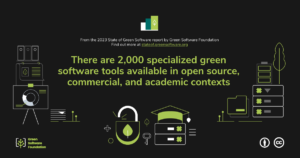First they came for the writers, but I was not a writer.
Then they came for the artists, but I was not an artist.
Then they came for the customer success agents, but I did nothing as I was not a customer success agent.
Then they came for the developers and support, but as that was not my function, I did nothing.
Then they came for the sales team and I did nothing. Maximising efficiency sometimes means sacrifice.
Finally they came for the C-team, but as I had invested everything in the shareholding portfolio, I did nothing.
Finally I am a major shareholder in this company that no-one works at, where no-one can afford our products because we replaced all of the jobs with AI. Why won’t someone do something to help us poor shareholders?
Longing. A not quite poem.
Longing. That’s an odd word. I’ve been chewing it for a couple of days now like a dog worries a piece of cured hide. At this point, like the hide, the word is gnarled beyond recognition and, truth be told, a little soggy.
The problem is what it implies versus what it means. Chew some more. Longing. Longing. Lengthening.
That’s it, isn’t it.
Longing means to wish for something to come sooner but the implication is that the wait is lengthened. Just one more example of how human feelings just make the human condition worse. We want for something so much that it makes the wait even longer. Longing. Lengthened.
And when received, where does this feeling go? It flies unbidden into oblivion. We don’t notice its passing and we certainly don’t mourn it.
Longing becomes a state of being. Or maybe a stateless being. When you’re longing for something, it’s enveloping, all-encompassing. Like an infant screaming for care, ignorant of time, you cannot remember a time before the longing and all you know is how to end it. Longing has no tempo and pace. It is as inexorable as grief and maybe that’s it? Is Longing grief for lost moments, for shared experiences never birthed? Is it the silent loss of these unborn joys that makes longing feel so god-damned terrible?
So, I grieve for these missed delights. And as I grieve I cannot understand how long I have grieved or how long it will be until the grief is replaced. I just know with every cell of my being that at some point the inarticulate shrieking in my soul will cease moments before I touch you.
From LinkedIn
This was uncredited in the post I stole it from. But I wanted to remember it.

Sunday with Michael Portillo: Yours Truly on Orca Attacks
This week on Sunday with Michael Portillo, I’ve been invited to talk about my experience with the Orca attack that disabled my sailboat, my observations of their behaviour during the attack and what it means for human interactions with wildlife and climate change.
https://www.gbnews.com › shows › sunday-with-michael-portillo
I don’t think it’s revenge, grief or memory. I think they’re much smarter than that.
Related:
The Guardian on ORCA Attacks
So, Green Software.
Her we are, mid-July in Malta and the temperature is soaring. 34º which ‘feels like’ 39º when you consider the humidity. All over the world weather is breaking new records and none of it in a good way. Record breaking soil temperatures. Record breaking sea temperatures.

My point for today was to highlight the state of green software.
Green Software is software specifically designed (or maybe excellently coded) to reduce resources or to have a positive impact on the environment. You won’t find very many so-called Web3 technologies in the list due, in part, to their huge energy requirements and many of them on Github will be unfinished, non-functional or perhaps one-offs far below what would be considered an MVP.
I am reminded of the Code 4 Good project back in Northern Ireland. I originally kicked it off as Code 4 Pizza. The idea that we would have a hackathon, provide pizza and drinks and focus on an area that really needed fixing for the good of society. Back in 2009, it was a pretty new idea and we managed to hack the local transport monopoly timetables into something usable. Later, I pitched the idea to the Building Change Trust and they ran a series of successful mini-projects where they’d match a programmer with a charity who had a need. Small bits of code to produce web apps and phone apps to make lives easier for charities.
This needs revived. To take on the challenge of fighting environmental collapse during a period when large corporations (fearful of boycotts from climate deniers) are pulling back on their public commitments – and if not held to account – will likely pull back on their real world commitments.
Some of this will be invisible software. Like software that helps a 3D printed solar panel frame orient itself towards the sun. Some of it will be very explicit, like reducing the energy footprint of major apps (Honestly, I’m looking at Firefox and Chrome here). As some of you may remember, I’ve been a fan of ultra-low-power-computing for years. The idea that my Phone has enough computing power for all of my needs has been demonstrated multiple times, the idea that my iPad (with a 20W power supply) was able to outpace the desktop PCs in Film School (with their 400W PSUs) is not lost on me. The concept that the Raspberry Pi, running on a tiny 5V 1A power supply could conceivably replace all of an individuals desktop computing needs is again not lost on me. On the Pi, desktop usage is a little sluggish, maybe not so much that a novice user would notice, but I notice.
But these pieces of hardware use less energy when working hard than a desktop PC uses when idle and I don’t know anyone who’s happy with their current energy bills.
We have the hardware to run highly optimised software – we just need to optimise the software.
Another update, has it been this long?
I last updated in November and here we are, seven months later with another update.
I arrived in Malta in early March and started working almost immediately, getting my residency here in April. I’ve spent the last couple of months just getting settled in a lovely rural location on the island of Gozo.
I’ve decided to resurrect something I used to run back in Ireland about 25 years ago. Around the time when the only support for Mac in Northern Ireland was NIMUG (Northern Ireland Mac User Group – which I founded). People needed a little more than just an online forum and I started to do this evenings and weekends while working full time. Eventually I found it worthwhile to quit the day job and then do Mac support full time – which is what eventually became Mac-Sys. As you probably know, I have Mac-Sys in the background beavering away but it seems that the islands of Malta have a dearth of decent outbound Mac support. So, with Mac Help Gozo, I’m looking to fill my evenings and weekends with helping folks.
Anyway, that’s what I’ve been keeping busy with – that and writing.
A year on…

A year ago I was in Sines after two months of sailing around the coasts of Western Europe. I’d already been living on my boat two years at this point (and I have to say that the weather is a lot better in Portugal rather than Ireland.
Things I have missed (or things I previously took for granted):
- No post. No letters, card, packages
- Related to the above….Amazon – the company we love to hate – is super useful for getting things fast. Need a mousetrap, they can be delivered literally in less than a day. Need glasses cleaning materials? 24 hours. It’s not the same in mainland Europe and it’s definitely not the same living on a boat.
- when you change countries, everything changes. Phone numbers, addresses, the price of milk, heck, even the type of milk.
- People – It’s more than a little isolating.
Remember where you are from. You’re from Earth.

Demonstrating “all” is difficult. Most of the time, the climate doesn’t follow our dire predictions. The date arrives and the apocalypse doesn’t happen.
This is why so many movies (2012, The Day After Tomorrow) depict two things
1. The disruption is happening faster than predicted.
2. It’s happening to nice, educated, relatable white people, not to strangers far from us.
Hence drama ensues. But this is a movie, right?
The reality is that it will be slightly slower than predictions but it will be uneven. Entire regions populated by people who don’t look like you will be devastated by floods or hurricanes. Meanwhile you’ll complain that the summer was a bit rubbish (or in sailing circles that the westerlies and trade winds patterns are changing).
The locations hit worst will be places that you like to go on holiday or regions which make your products cheaply.
But it doesn’t have to be like this.
Providing developing countries with modern technology (such as solar) in sufficient quantities could change them from being a carbon-producing economy into a carbon neutral economy. The impact of that alone could be massive – China already has realised that their rapid industrialisation has had a negative impact and they’re taking steps to produce more solar every year than most countries will ever install in a lifetime.
We have the technology to create a future-proofed 22nd Century civilisation. But like climate disruption, it is applied unevenly.
The negatives of globalisation can be turned into positives if we remember that we all live on the same sphere (the pale blue dot) and that what happens in London or Mumbai or Durban will have an effect on lives in Shenzhen, Helsinki and Melbourne.
Remember this when someone asks you where you’re from.
You’re from Earth
Why Armour?
For many small to medium enterprises, the idea of ISO certification is daunting. They’ll see companies announcing their latest certifications on LinkedIn or they’ll see the banners on web sites and they’ll immediately think it’s not for them. Not yet anyway.
When I started out in business, I had no idea what ISO certification was. Then, with my first big public sector tender, I got a quick introduction to it. It was something we needed to have to respond to the tender; a prerequisite for this organisation to do business with us. Cue a lot of sleepless nights figuring out how to respond to this tender; and in the end, we found a partner who had the certification and applied alongside them. End result? Our profit margin took a hit but we got the work.
My next contact with ISO was again from a point of not understanding what it was. I got the impression that it was all about adding documentation to everything. From payroll to toilet breaks. Of course I was wrong again; but this is what happens when you listen to other people rather than going to the source.
If only I knew then what I know now.
The ISO certification isn’t about getting a checkbox; it’s about real world stuff. It’s about looking after your business should something bad happen. It’s about caring for employees to prevent something bad happening. It’s about covering your back should something bad happen to you. And it’s about showing the world that you’ve put thought into it, that you’re not just flying by the seat of your pants.
You’re as likely to fail an ISO audit from having too much process and documentation as too little. If you’ve put too much in there and it becomes outdated or worse, it doesn’t get used, then you’re not doing anyone any favours.
So, if you were intending to get ISO certification for responding to that big tender or, alternatively, if you just wanted it because you’ve figured out that it’s about running a business right and not just checking a box, how would you do it?
Well, there’s two ways.
The first is to contact an ISO consultant. Then you go through a lengthy consultative process and have a lot of distracting work where you tell them all about your business and they start to draft your documentation for you. You’ll pay them a small fortune for them as well as the employees who are being involved in the knowledge transfer. Finally you pay for the certification and hope that it works out; again it may be days of the auditor being onsite and disrupting the main line of business. And every day is costing money.
The second is to use an ISO management tool, like Armour. Essentially the tool tells you what you need through a Q and A process that you lead; at your pace. Based on your answers, it will tell you what documentation you need AND provide templates. You can assign tasks to employees directly so there’s no need for this knowledge transfer phase – you and your employees are directly involved. And when the time for certification comes, your audit can be initially processed remotely and a lot of the work done before the site visit which saves both time and money.
From Armour
This discrepancy in the way things are done is why we built Armour. We took decades of experience as ISO consultants and auditors and put them into this tool. We strongly believe that the preparation and audit process needs to be owned by the business and the employees rather than an external ISO consultant who’s contracted for a few days work. We firmly believe that this tool fosters engagement within the business and cements the practice within the day to day work of employees.
Whether your motives are to run your business right or just to get bigger tenders and retain more of that profit margin, you need to give Armour a look. You can sign up right now and peruse legislation that has been simplified for your consumption so you don’t need to be a specialised consultant to understand it.
Use Armour to protect your employees, your business and your bottom line.
Basic Income is a sham
Capitalism is based on the premise of un-ending growth. That it is always possible to make more, sell more, to more people. But unfortunately it’s not working like that. The concentration of wealth in the upper echelons of society means there is a dearth of wealth in the lower, and we are many.
Without consumers to buy, without cash in their pockets, capitalism crumbles and Oroboros Capitalism ends up consuming itself. With no money available among consumers, due to higher costs of living and lowe rates of pay, where will the money come from to keep the rate of growth that capitalism demands? We have seen them pushing into other nations, through the developed world into the developing nations, eager to grasp their wealth as rapidly as they have plundered their resources.
Countries and regions can experiment with Universal Basic Income as a way of dealing with the pressures of a growth-based economy where the foundations have collapsed. But it is merely a sop to keep Capitalism alive.
By all means, embrace UBI as a way of doing what you want rather than selling your life by the hour to people who absolutely would replace you if lives were available cheaper. But be true to your real aim.
We must separate maintaining a home, being warm and having enough food and potable water and adequate healthcare from how we spend our lives as there will not be enough work for all of us in the future. Unless we make this separation, we will starve.
